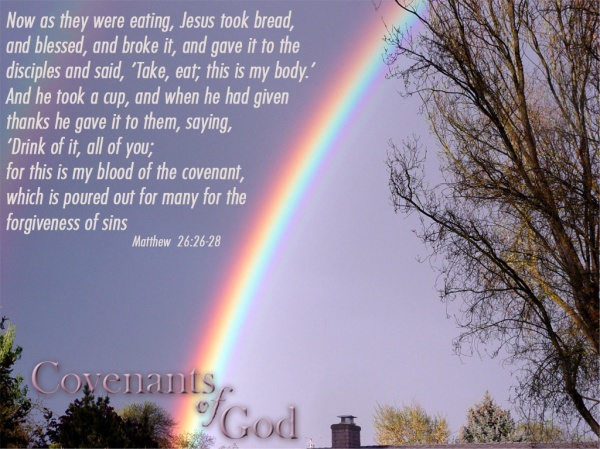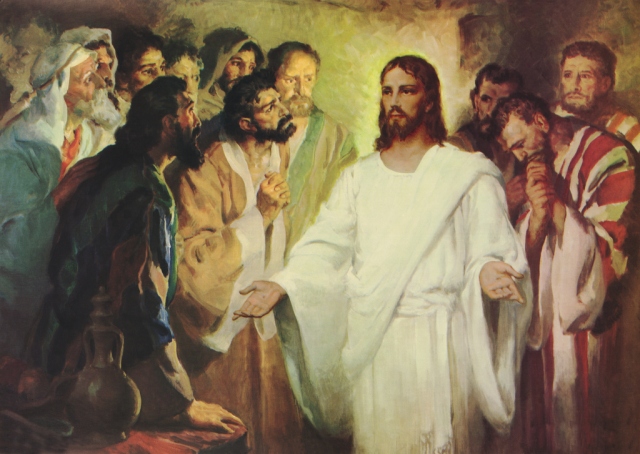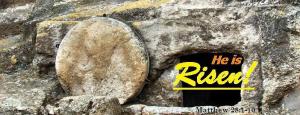Dear BLCF Friends,
Effective April 10, 2022, Bloor Lansdowne Christian Fellowship – BLCF Church will reopen by reservation only for Sunday worship under the limitations and guidelines set by Public Health and the Board of BLCF. In order to protect those who are vulnerable at Bloor Lansdowne Christian Fellowship from COVID-19 Virus infection, the BLCF Board mandates that the church will be open by reservation, with the following rules:
- attendees must wear a mask while on the premises
- attendees give their contact information upon arrival
- attendees observe two meters social distance while seated
- attendees use hand sanitizer as needed
- attendees follow any additional directions given by members of the board, while inside the church
Please be advised that both the BLCF Café Community Dinner and the BLCF Wednesday Prayer Service will continue to remain closed effective March 16, 2020, and until further notice. We pray with the administration of sufficient COVID-19 vaccinations, and following the determination of Health Canada and other Health Authorities, that the danger of the Pandemic will have subsided sufficiently, to allow BLCF to reopen safely more of our worship and outreach activities without any concern of infection to the vulnerable within our community.
– Pastor Steve
Bloor Lansdowne Christian Fellowship – BLCF Church Message for Sunday:
‘Standing on God’s Promises: The Rainbow Covenant’
© June 12, 2022, by Steve Mickelson
Based on Messages Shared with BLCF on February 21, 2021, September 29, 2019, August 10, 2014,
and June 13, 2010
BLCF Bulletin September 29, 2019
BLCF: Bulletin August 10, 2014
Opening Music Special:
Days of Elijah with Robin Mark – (Official Lyric Video) – https://youtu.be/ca9LnzJnpjQ
In Christ Alone (small choir a capella with lyrics) – Keith Getty / Stuart Townend –
Announcements and Call to Worship; Prayer
Prayers and Tithing – Hymn #572: Praise God; Prayer Requests
Doxology (Praise God From Whom All Blessings Flow) Instrumental – https://youtu.be/Mk4p3rihONU
Great Is Thy Faithfulness | Maranatha! Music (Lyric Video) – https://youtu.be/ErwiBz1QA4o
Responsive Reading #668 (The New Life of Prayer – Colossians 3)
Message by Steve Mickelson: Standing on God’s Promises: The Rainbow Covenant’

Let us pray…
The story of Noah, God’s judgment, the ark full of animals, the great flood, and the rainbow found in the Book of Genesis is one of the best known to believers and non-believers, alike. The story has been retold in recent movies, where God’s truth is sometimes replaced by science or the imagination of Hollywood Screen Writers.
For this morning’s lesson at BLCF, we will focus our study on “The Rainbow Covenant”. You may ask the question: “What is meant by the term covenant?” Webster’s Online gives us a couple of definitions which may help us understand. Webster’s definition is as follows:
Cov´e`nant Pronunciation: k?v´?-n?nt noun
| (Theology) The promises of God as revealed in the Scriptures, conditioned on certain terms on the part of man, as obedience, repentance, faith, etc.I will establish my covenant between me and thee and thy seed after thee in their generations for an everlasting covenant, to be a God unto thee, and to thy seed after thee.- Genenesis xvii. 7. | ||
| A solemn compact between members of a church to maintain its faith, discipline, etc. | ||
| (Law) An undertaking, on sufficient consideration, in writing and under seal, to do or to refrain from some act or thing; a contract; a stipulation; also, the document or writing containing the terms of agreement. |
http://www.webster-dictionary.org/definition/Covenant
The Biblical use of covenant describes an agreement between God and either an individual or people. Scholars generally agree that the Scriptures contain about ten covenants. These ten can be divided into one of two types: either unilaterally coming from God or bilaterally between God and the individuals or people.

Looking at the chart inside the bulletin, near the bottom left (shown here, above), you can get a brief overview of God’s Covenants found in the Holy Scriptures. Six of the Unilateral Covenants are concerned with obedience, sin, the Flood, the descendants of Abraham, and the Ten Commandments. The three Bilateral Covenants are referred to as Blood Covenants, involving the patriarchs, Israel, and all believers’ salvation. The final covenant is unilateral, which we refer to as the New Covenant between God and believers in the Gospel of Christ.
Let us continue with the story of Noah and God’s Rainbow Covenant, which begins in Genesis 6:1, and ends in Genesis 9:17.
Noah’s Ark and the Flood – Story Summary (from about.com):

God saw how great wickedness had become and decided to wipe mankind from the face of the earth. However, one righteous man among all the people of that time, Noah, found favor in God’s eyes. With very specific instructions, God told Noah to build an ark for him and his family in preparation for a catastrophic flood that would destroy every living thing on earth.
God also instructed Noah to bring into the ark two of all living creatures, male and female, along with every kind of food to be stored as food for the animals and his family while on the ark. Noah obeyed everything God commanded him to do.
After they entered the ark, rain fell on the earth for a period of forty days and nights. The waters flooded the earth for a hundred and fifty days, and every living thing on the face of the earth was wiped out. As the waters receded, the ark came to rest on the mountains of Ararat. Noah and his family continued to wait for almost eight more months while the surface of the earth dried out.
Finally after an entire year, God invited Noah to come out of the ark. Immediately, he built an altar and worshiped the Lord with burnt offerings from some of the clean animals. God was pleased with the offerings and promised never again to destroy all the living creatures as he had just done. Later God established a covenant with Noah: “Never again will there be a flood to destroy the earth.” As a sign of this everlasting covenant God set a rainbow in the clouds.
Points of Interest from the Story:
- God’s purpose in the flood was not to destroy people, but to destroy wickedness and sin. • With more detail, God instructed Noah to take seven of every kind of clean animal, and two of every kind of unclean animal. Bible scholars have calculated that approximately 45,000 animals might have fit on the ark. • Genesis 7:16 interestingly points out that God shut them in the ark, or “closed the door,” so to speak.
- The ark was exactly six times longer than it was wide. According to the Life Application Bible study notes, this is the same ratio used by modern ship builders. • In modern times researchers continue to look for evidence of Noah’s Ark.
- Noah was righteous and blameless, but he was not sinless (see Genesis 9:20). Noah pleased God and found favor because he loved and obeyed God with his whole heart. As a result, Noah’s life was an example to his entire generation. Although everyone around him followed the evil in their hearts, Noah followed God.
http://christianity.about.com/od/biblestorysummaries/p/noahsarkflood.htm

Noah’s Ark was huge! Genesis 6:15 in the Bible tells us the Ark’s dimensions were at least 135 meters long (300 cubits), 22.5 meters wide (50 cubits), and 13.5 meters high (30 cubits). That’s 450 feet long, 75 feet wide and 45 feet high! It could have been larger, because several larger-sized cubits were used. But the 45-centimeter (18-inch) cubit is long enough to show the enormous size of the Ark. A cubit was the length of a man’s arm from fingertips to elbow.
Noah’s Ark was three stories high (Genesis 6:16). Its total deck area was equivalent to the area of about 20 standard college basketball courts or 36 lawn tennis courts. The world had to wait until AD 1884 before the Ark’s size was exceeded, when the Italian liner Eturia was built.
The rectangular dimensions of the Ark show an advanced design in ship-building. Its length of six times its width and 10 times its height would have made it amazingly stable on the ocean. Remember it was made more for floating than sailing because it wasn’t headed anywhere. The Ark was made to withstand a turbulent ocean voyage, not to be at a certain place at a certain time.
Recent thought on the Ark’s design is that it could have had a slightly tapered top at the front and back, instead of being squared off. But the famous rock formation near Mount Ararat with pointed ends, which some think is Noah’s Ark, is definitely not!
Interestingly, British civil and mechanical engineer Isambard Kingdom Brunel built a steamship (the Great Britain) in 1843 that had almost the same proportions as the Ark, although it was smaller. This was regarded as a remarkable feat of Victorian and maritime engineering. The Great Britain was the first large vessel to be propelled by a screw propeller.
In summary, Noah’s Ark was taller than a 3-story building and had a deck area the size of 36 lawn tennis courts. Its length was 300 cubits (450 feet, or 135 meters); its width was 50 cubits (75 feet, or 22.5 meters); it had three stories and its height was 30 cubits (45 feet, or 13.5 meters).
http://www.creationtips.com/arksize.html
Questions and Answers, from: biblia.com
Question: “How long did it take Noah to build the ark? How long was Noah on the ark?”
Answer: The Bible does not specifically say how long it took Noah to build the ark. When Noah is first mentioned in Genesis 5:32, he was 500 years old. When Noah entered the ark, he was 600 years old. The time it took to build the ark would depend on how much time had passed between Genesis 5:32 and the time that God commanded Noah to build the ark (Genesis 6:14-21). At the absolute most, it took 100 years.
Question: How long was Noah on the ark?
Answer: Noah entered the ark in the 600th year of his life, on the 17th day of the 2nd month (Genesis 7:11-13). Noah left the ark on the 27th day of the 2nd month of the following year (Genesis 8:14-15). Therefore, assuming a lunar calendar of 360 days, Noah was on the ark for approximately 370 days, the flood lasting for 150 days. Genesis 7:11-13 (ESV):
11 In the six hundredth year of Noah’s life, in the second month, on the seventeenth day of the month, on that day all the fountains of the great deep burst forth, and the windows of the heavens were opened. 12 And rain fell upon the earth forty days and forty nights. 13 On the very same day Noah and his sons, Shem and Ham and Japheth, and Noah’s wife and the three wives of his sons with them entered the ark…
Genesis 8:14-15 (ESV):
14 In the second month, on the twenty-seventh day of the month, the earth had dried out. 15 Then God said to Noah…
Question: How many of each type of animal did Noah take on the ark? Seven pairs of each kind of clean animal and two pairs of each kind of other animals were taken on the ark (Genesis 6:19-20; 7:2-3). By “clean” the Bible means animals that were “acceptable for sacrifice.” That is why seven pairs of the clean animals were taken – so some of them could be sacrificed after the Flood was over without endangering the species. Genesis 6:19-20 (ESV):
19 And of every living thing of all flesh, you shall bring two of every sort into the ark to keep them alive with you. They shall be male and female. 20 Of the birds according to their kinds, and of the animals according to their kinds, of every creeping thing of the ground, according to its kind, two of every sort shall come in to you to keep them alive.
Genesis 7:2-3 (ESV):

2 Take with you seven pairs of all clean animals,[a] the male and his mate, and a pair of the animals that are not clean, the male and his mate, 3 and seven pairs[b] of the birds of the heavens also, male and female, to keep their offspring alive on the face of all the earth.
Footnotes: a. Genesis 7:2 Or seven of each kind of clean animal b. Genesis 7:3 Or seven of each kind
Regarding the Bible’s account of Noah, the Ark, and the Flood, let me point out the following liberties taken in the movie, Noah which featured Russell Crowe in the title role:

Question: How many people were on Noah’s ark?
Answer: According to Genesis 7:13, Noah, his wife, Noah’s three sons (Shem, Ham, and Japheth), and their wives were on the ark. Therefore, there were eight people on the ark.
13 On the very same day Noah and his sons, Shem and Ham and Japheth, and Noah’s wife and the three wives of his sons with them entered the ark,
Question: Who was Noah’s wife?
Answer: The Bible nowhere specifically gives us the name or identity of Noah’s wife. There is a tradition that she was Naamah (Genesis 4:22). While possible, this is not explicitly taught in the Bible, Genesis 4:11 (ESV):
22 Zillah also bore Tubal-cain; he was the forger of all instruments of bronze and iron. The sister of Tubal-cain was Naamah.
It must have been quite a curiosity to others seeing Noah, spending decades building the ark. The dedication of Noah to the task is undeniable. Others continued to offend God and ultimately their fate was sealed by the waters of the Great Flood.
Now let me make a few observations about both God’s judgment and His covenant. Actually, there are two covenants from God; the first was the judgment by God, the penalty of death. We observe that God decides to do a reset and bring the earth back to Day two of creation as told in Genesis 1:6-8, where there are only the waters, with no land. The land came on the third day of creation.
While the judgment may seem harsh, God did not destroy all life by the flood, but He had in the ark, a means to preserve animal life and the human race, both precious to Him. The waters cleansed the world of evil.
It is interesting that Noah sent a dove to determine whether the world was safe in Genesis 8:6-12 (ESV) we read:
6At the end of forty days Noah opened the window of the ark that he had made 7and sent forth a raven. It went to and fro until the waters were dried up from the earth. 8Then he sent forth a dove from him, to see if the waters had subsided from the face of the ground. 9But the dove found no place to set her foot, and she returned to him to the ark, for the waters were still on the face of the whole earth. So he put out his hand and took her and brought her into the ark with him. 10He waited another seven days, and again he sent forth the dove out of the ark. 11And the dove came back to him in the evening, and behold, in her mouth was a freshly plucked olive leaf. So Noah knew that the waters had subsided from the earth. 12Then he waited another seven days and sent forth the dove and she did not return to him anymore.
The dove is an interesting choice. Though it is mentioned over fifty times in the scriptures, that the dove is significant in appearance and what it represents in two passages:
Immediately after Jesus was baptized in water by John, we read the Holy Spirit descended upon Christ: Mark’s Gospel 1:10 (ESV): 10And when he came up out of the water, immediately he saw the heavens being torn open and the Spirit descending on him like a dove.
So as Jesus was baptized and reborn with the Spirit, the earth is cleansed by water and a dove descends with an olive leaf. I would like to point out that the olive branch has been used as a universal symbol of peace and reconciliation. The city-states of ancient Greece sought to end wars between its states, replacing competition and conflict with the Olympic Games. Wars and battles were suspended for the duration of the competition. The winner of a specific event was rewarded not with the medallions of the modern Olympics, but instead a garland of olive branches woven into a crown, the Olympian being crowned as a king of that event. That crown of olive branches brings to mind the crown of thorns Christ wore, as he suffered and died to atone for our sins. In the times of Christ, the oil from olives was used to fuel the lamps of the empire. And the dove carrying the olive leaf to Noah after the flood could be viewed to symbolize the Spirit bringing life, hope, and light to the world.
God made a promise never to destroy human or animal life by flood, again.
Genesis 9:8-17 (ESV)

8Then God said to Noah and to his sons with him, 9“Behold, I establish my covenant with you and your offspring after you, 10and with every living creature that is with you, the birds, the livestock, and every beast of the earth with you, as many as came out of the ark; it is for every beast of the earth. 11I establish my covenant with you, that never again shall all flesh be cut off by the waters of the flood, and never again shall there be a flood to destroy the earth.” 12And God said, “This is the sign of the covenant that I make between me and you and every living creature that is with you, for all future generations: 13I have set my bow in the cloud, and it shall be a sign of the covenant between me and the earth. 14When I bring clouds over the earth and the bow is seen in the clouds, 15I will remember my covenant that is between me and you and every living creature of all flesh. And the waters shall never again become a flood to destroy all flesh. 16When the bow is in the clouds, I will see it and remember the everlasting covenant between God and every living creature of all flesh that is on the earth.” 17God said to Noah, “This is the sign of the covenant that I have established between me and all flesh that is on the earth.”
The rainbow is significant in several ways. Like a prism, water mist can diffract or break a beam of light into a spectrum or rainbow of component colours. But you need the presence of water vapour and sunlight, under the right conditions, invisible light becomes visible as a rainbow of colours. Not only does the rainbow symbolize God’s covenant not to kill man or beast by flood, but the rainbow is also an example of the world of the invisible becoming visible. For many people God does not exist, he is invisible. Through faith, as with Noah’s obedience by building the ark and gathering the animals and his family, he was rewarded by being saved from the flood and given the rainbow as a symbol never to bring this judgment upon the people or beasts again.
A few years ago, Sophie and I took a trip to Niagara Falls. Every time we go to the falls, I am always humbled by the beauty and splendor of God’s natural creation. Looking at the millions of liters of water cascading over the waterfall creating the sound of thunder and clouds of mist, you cannot but marvel at the site. I remember as I was walking ahead towards the more spectacular Horseshoe Falls, I saw many in the crowd turning their backs on this natural wonder, looking across to the relatively less spectacular American Falls. Some were taking pictures. As I approached these people, I looked in the same direction and saw nothing. I could not figure out why they were taking pictures of the ordinary downstream gorge when the full power and beauty of the falls were just behind them?

It wasn’t until I continued 20 or 30 meters upstream, along the walkway, towards the falls did I have a glimpse of the object of the crowd’s attention. As I walked toward the falls, the mist of the falls mingled with the sunlight to reveal a beautiful rainbow. A few meters down, away from the falls, the rainbow disappeared from view.

It was then that I reflected that this rainbow is truly like God’s presence. For those who believe, who pray, and honour Him, we are rewarded by the rainbow of His presence. But for those unfortunate who reject Him and do not accept Him, there is no rainbow. And like those who cannot see the rainbow, because they lack faith or refuse to accept His gift of love and salvation, the unbelievers believe God does not exist. While they may look at the light, they do not see the hidden beauty of the rainbow that signifies God’s presence. Belief in God is like seeing the beauty hidden within. Faith is rewarded through confessing our sins, reading the scriptures, praying to God, and practicing brotherly love to our neighbors, as well as helping the least of our brothers and sisters. Only then are the conditions correct to see God’s rainbow of faith.
As followers of Christ, we are admonished by Him, to use our intelligence and integrity of faith to meet the challenges and persecution that we face in our Christian walk.
Matthew 10:16 (ESV) tells us that persecution will come:
16 “Behold, I am sending you out as sheep in the midst of wolves, so be wise as serpents and innocent as doves.”
The Holy Spirit helps us to preserve what is Godly in ourselves. We must maintain the innocence of the dove and bring the good news to others as the dove had to Noah, in spite of being persecuted for our faith.
My brother-in-law, Chuck is an avid flier, having obtained his pilot’s license before his license for a car. He spent several years building his open cockpit airplane. My sister Penny told me of the occasion on one of their trips, they passed through a deck of clouds, only to witness what is called a flier’s or pilot’s rainbow, which tradition has to indicate good fortune, as they are leaving turbulent weather. The pilot’s rainbow is distinctive in that instead of being an arch of colour, the rainbow is a perfect circle surrounding the entire aircraft. I like to think that this might be the heavenly view of the rainbow. The rainbow God sees is a perfect circle, like a wedding band, the circle is continuous, unending, and just like God’s love for us is perfect and without end.
God made another covenant; this one is bilateral but just as perfect, as beautiful, and as unending as the rainbow. Instead of the rainbow, God gave us Jesus Christ, to fulfill His promise, which states that we shall not perish or be destroyed. As Noah had shown by building the ark, filling it with the animals, and his family, we are expected to confess our sins and follow His directions by accepting that, while we were yet sinners, Christ died for our sins, this sacrifice is God’s gift to us. If we accept the gift of Christ, the lamb, we are saved and we are given the Holy Spirit as a comforter, plus the promise that as Christ overcame death and was resurrected, we too have the promise of overcoming death and eternal life. Jesus Christ is both our ark and rainbow. He provides for us the only way to forgiveness and the promise of life eternal.
In conclusion, anytime you want to witness to others who have yet to accept the sacrifice of Christ, or at times when you find that your own faith falters, remember the Rainbow, it is always there waiting to be revealed to us, when we provide the right conditions by our reading the scriptures, praying for others and ourselves, by showing the love of Christ in all that we think, all that we say, all that we do to all whom we encounter. And remember, it took Noah nearly a century of practicing faith before he saw the fulfillment of God’s promises. But Noah’s legacy was not only a covenant to Noah and his descendants and to us as well. The rainbow is a reminder to Noah, to us, and to God, that our God is just and faithful, and that our faith will be rewarded so long as we allow him to pilot us through life’s troubled waters.
Let us pray…
Closing Hymn #225 – Standing on the Promises – with Neil & Lisa Rondina (with lyrics) – https://youtu.be/QvBlrooUszQ
Benediction – (Romans 15:13):
May the God of hope fill you with all joy and peace in believing, so that by the power of the Holy Spirit you may abound in hope.







 Q: When is a church more than just brick and mortar?
A: When the people of the church decide to provide for those who are homeless and disadvantaged in the heart of Toronto with a warm meal in an environment that is safe and friendly: BLCF Cafe Community Dinner, Est. 2008.
Q: When is a church more than just brick and mortar?
A: When the people of the church decide to provide for those who are homeless and disadvantaged in the heart of Toronto with a warm meal in an environment that is safe and friendly: BLCF Cafe Community Dinner, Est. 2008.





















































































































































